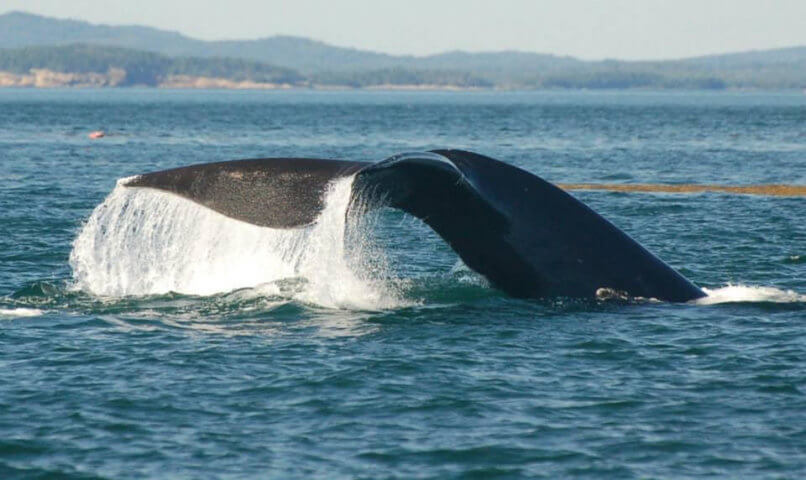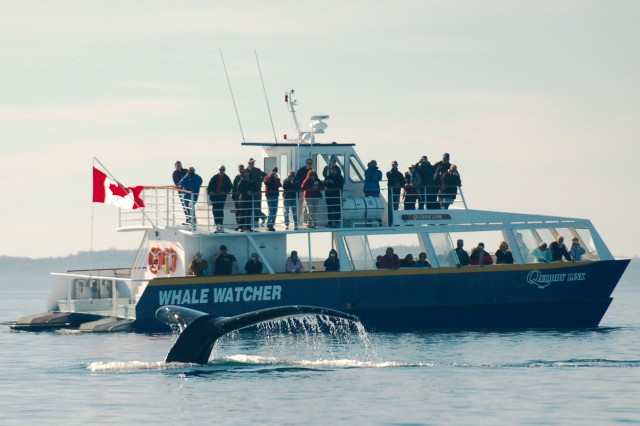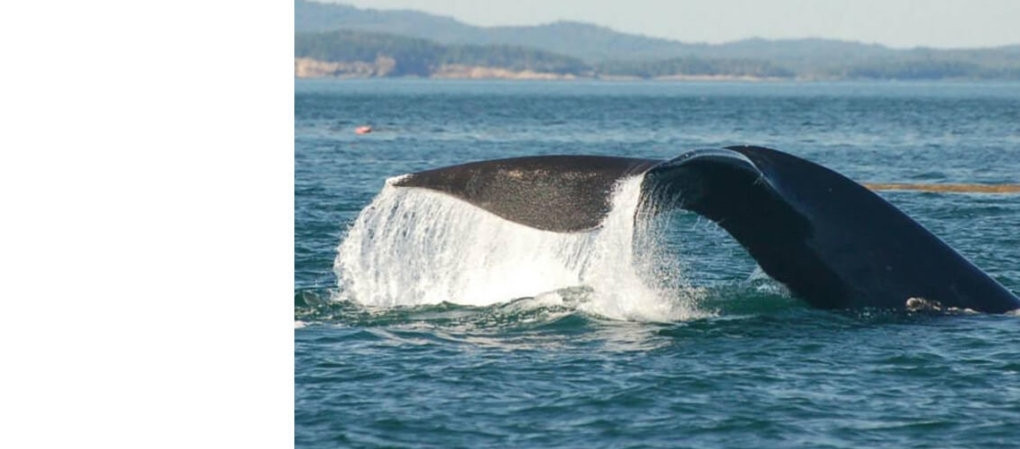
Amid evidence that at least two of the seven right whales recently found dead in the waters off New Brunswick were likely struck by a ship, a wildlife pathologist leading the investigation says it’s time to slow down tanker and ship traffic in the Gulf of St. Lawrence.
Dr. Pierre-Yves Daoust of the Atlantic Veterinary College in Charlottetown told CBC Information Morning Fredericton that he wants the Canadian Coast Guard and the shipping and fishing industries to meet around the table and talk about ways to prevent such collisions from happening.
The call for a collaborative solution was echoed this week by the Canadian Whale Institute and Campobello Whale Rescue Team after a member of the rescue team, Joe Howlett, died while successfully freeing an entangled right whale on Monday, July 10.
See also: Conservation Council, Fundy Baykeeper deeply saddened by loss of whale rescuer and veteran fisher
“I would welcome the start of a discussion about this kind of potential interaction between an endangered species like the right whale, and the fishing industry and the shipping industry,” Daoust told the CBC on July 4.
He said making vessels move slower in areas where whales are known to move and feed could reduce the number of ship strikes.
Since June 6, seven right whales have been found dead in the Gulf of St. Lawrence, the latest reported on July 5.
Preliminary results from necropsies performed on three of the whales showed evidence that two suffered from blunt trauma, such as a ship strike, and one had become entangled in fishing gear.

Earlier this week, the Department of Fisheries and Oceans temporarily closed an area off the coast of Miscou Island — where a concentration of right whales has been observed — to snow crab fishing, saying all gear must be removed by Friday through to the end of the fishing season on July 28.
Jerry Conway, an adviser with the Canadian Whale Institute and member of the Campobello Whale Rescue Team, told the New Brunswick Telegraph-Journal that DFO, the fishing industry, and other experts should come together to find a longterm solution.
“Fishermen are very innovative,” Conway said. “They make their living at sea … I’m sure with a little bit of time and patience and them having all the information that’s available, they can come up with a solution that will mitigate the entanglements.”
Our Fundy Baykeeper, Matt Abbott, echoed Conway’s perspective, saying “traditional fisheries have long been important partners on a wide range of environmental issues. Fishers tend to have deep knowledge of and appreciation for the waters where they work and have shown willingness to find innovative solutions to pressing issues.”
Scientists are calling what’s happening to the right whales “devastating” and an “unprecedented die-off,” representing the loss of more than one per cent of the endangered species’ total population.
Recommended links
- What’s happening to the right whale?
- Conservation Council, Fundy Baykeeper deeply saddened by loss of whale rescuer and veteran fisher
- Read about the impact of tanker traffic on whales and other marine mammals in the Bay of Fundy in our report, Tanker Traffic and Tar Balls: What TransCanada’s Energy East Pipeline Means for the Bay of Fundy and Gulf of Maine

